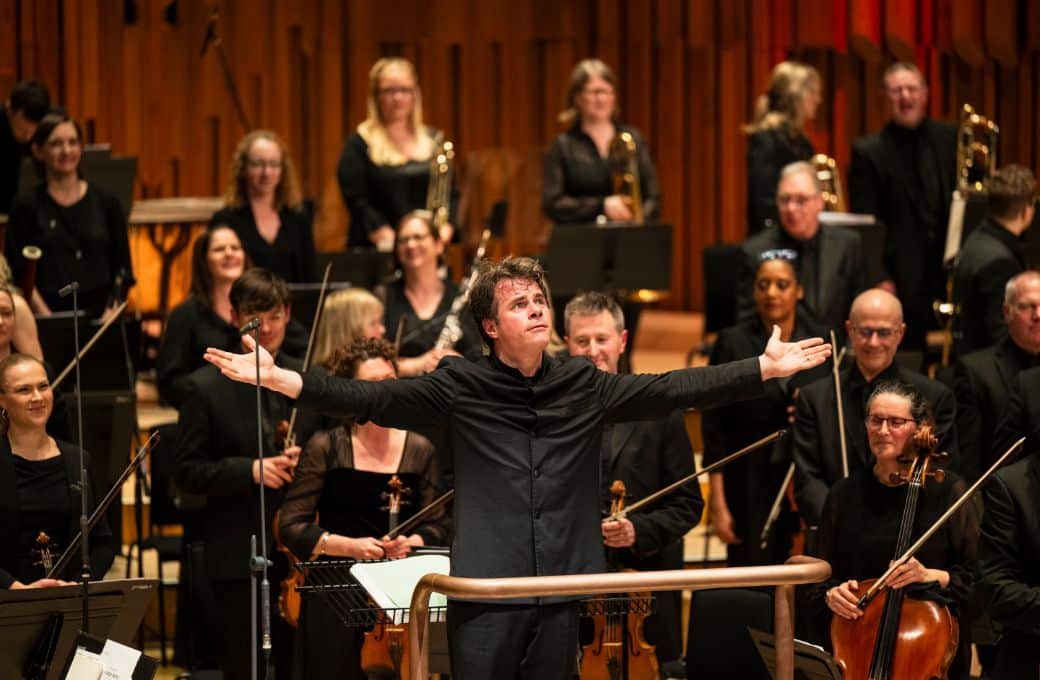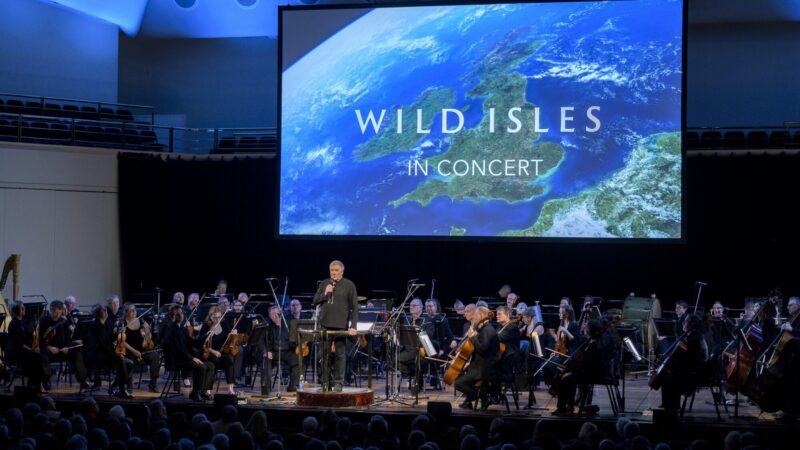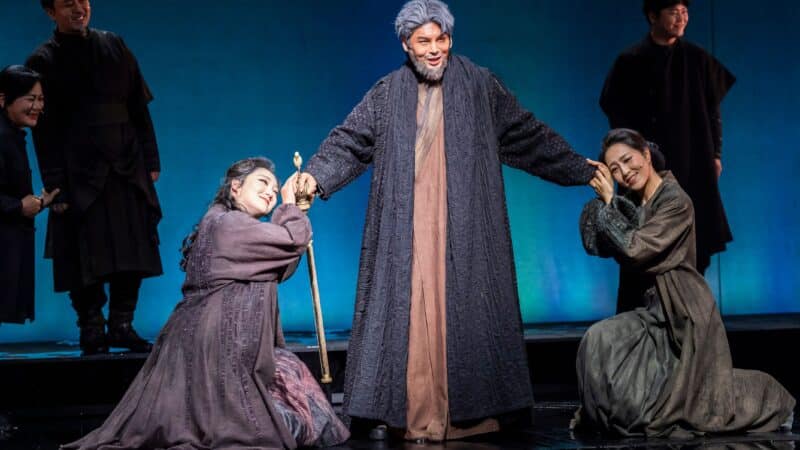Barbican Hall
The evening has a sense of celebration, of newly minted and upcoming grandeur. Jakub Hrůša’s face is one we will gladly get used to as he takes up his post as musical director of the Royal Opera House. Tonight, he leads the BBC Symphony Orchestra, weaving fellow Czech composer Pavel Haas’s tumbling emotions with Beethoven’s youthful exuberance and the spurt of blood on snow of Shostakovich’s symphony no.11 in G Minor.
Emerging first with one of the European voices tragically silenced by the Nazis. Haas was well on his way to becoming a sensation when he was murdered in Auschwitz for being Jewish. Influences of Leoš Janáček (his tutor) and Debussy are clear, a musical exploration of turbulent feeling. Written in 1920 Scherzo Triste, Op 5 is a pleasant and surprising piece, all stormy seas of swelling strings, thunderclaps breaking up the upward draughts, settling into a tired emotional resignation.
Later we jump over to 1957, but a link is maintained with the earlier part of the century as we march into Dmitry Stostakovich’s symphony about the 1905 bloody massacre of revolutionaries by the Tsarist troops. Written for the 40th anniversary of the later successful 1917 October Revolution it is at face value a nationalistic and patriotic piece by the Soviet Union’s lead composer. However, things are always more complex, clearly having the Hungarian Revolution of 1956 in mind when he composed it.
Proving himself a curiously cinematic composer we start with a vista of the icy palace square. In my mind I saw a glimpse of a frozen spacecraft floating in orbit, the start is an otherworldly exhibition of slowly layering tension. Building to most frantic proportions, breath baiting, many a pacemaker straining at the violence, blasts of percussion, tattoos of drums, a volley of flutes and clarinets. The smoke is swept away, dread heavy, clashing and slashing of the battle unfairly pitched between the armed soldiers and unarmed peasants. Proving himself always the master of maelstrom everything is thrown into the fray: tubas, xylophones, two harps plucking away, taking Hrůša off his feet as he swings around with his baton, directing the musical carnage. Then it’s all over. The ground is soaked in blood and the rage is spent. Despite its branded glorification of the revolutionary’s sentiments, it’s mourning death, and the hopelessness of ordinary people’s struggle. Reflecting critically on all totalitarian regimes past and present, uncomfortably relevant in our current political atmosphere.
In between sits rather oddly the bubbling Ludwig Van Beethoven’s piano concerto No. 2 in B flat major, written in 1787. A demanding piece thankfully leaning on American concert pianist Jonathan Biss. In a greyish silken shirt, hands curling lightly, he delights in this cavorting dance with the orchestra. Sometimes a call and response, sometimes a wrestle for prominence, this tests both pianist and musicians and all come out expertly. The frolicking energy and rhythmical cordiality of this piece may come across as frothy and over-exuberant between the two other pieces but gives us a nice pause from all that torrent of blood and unhappiness. Introducing me to both Hrůša and Biss, an utterly blissful experience from start to finish.
Although this concert has finished its run, click HERE for more spine tingling classical music!



